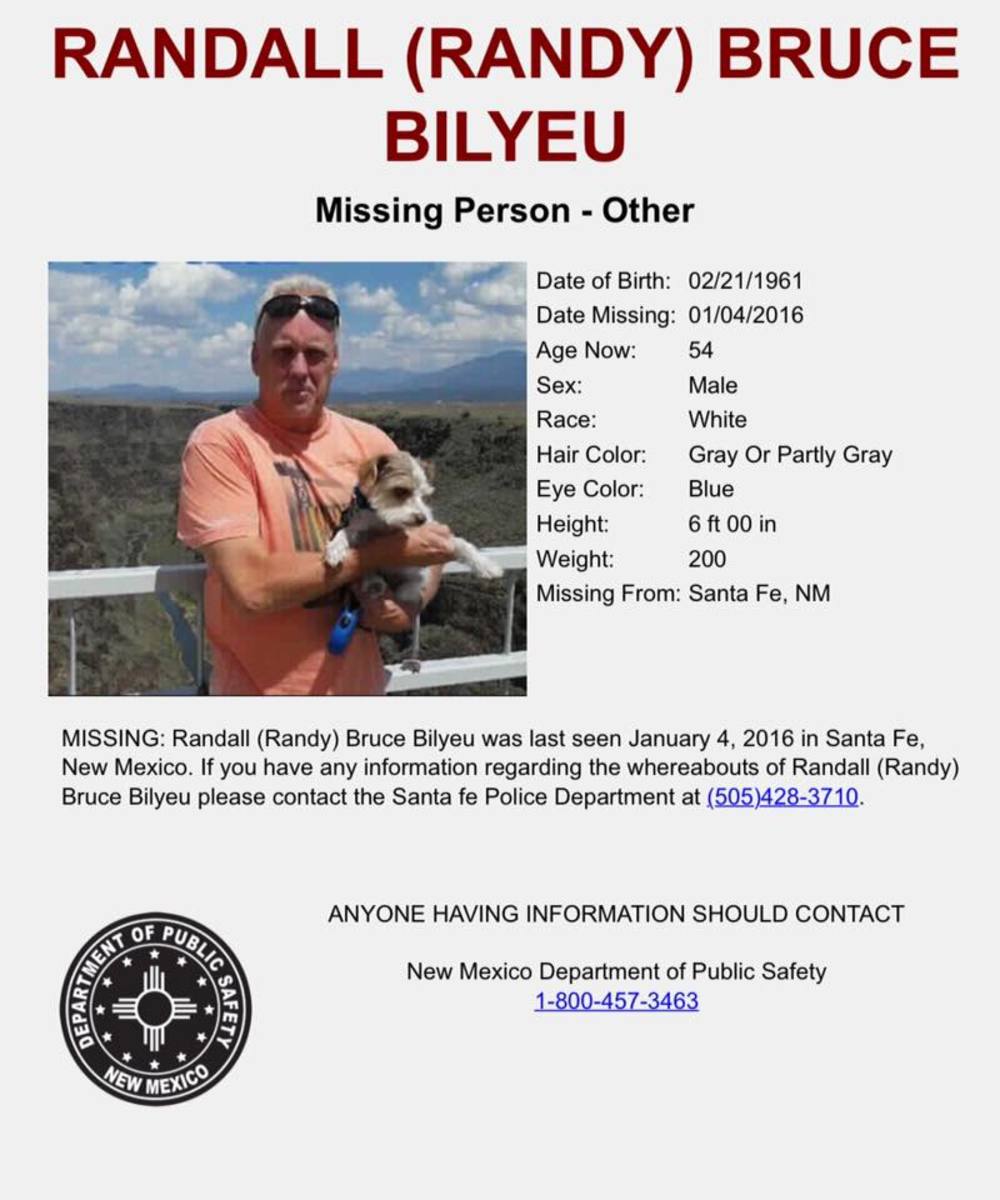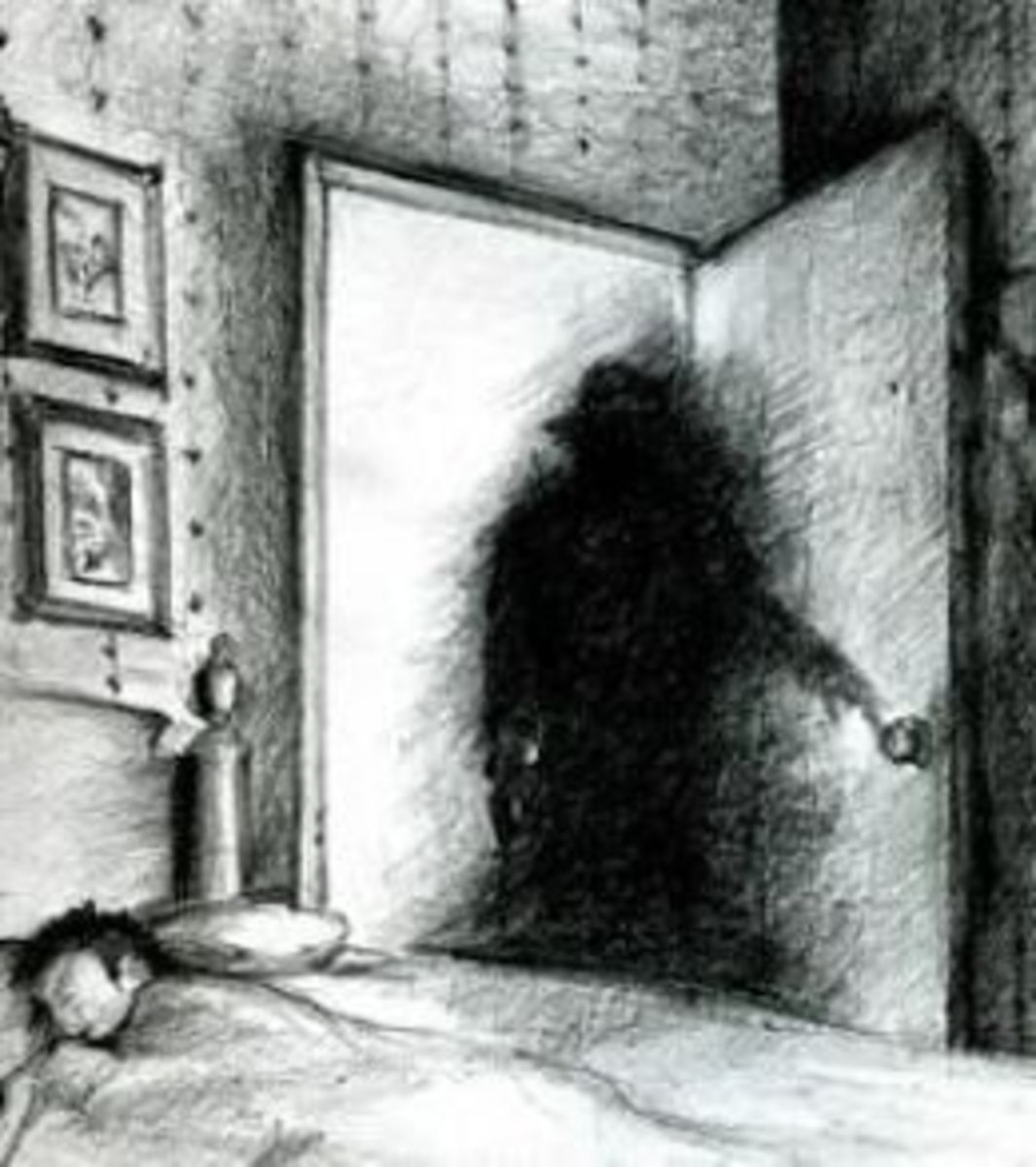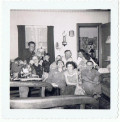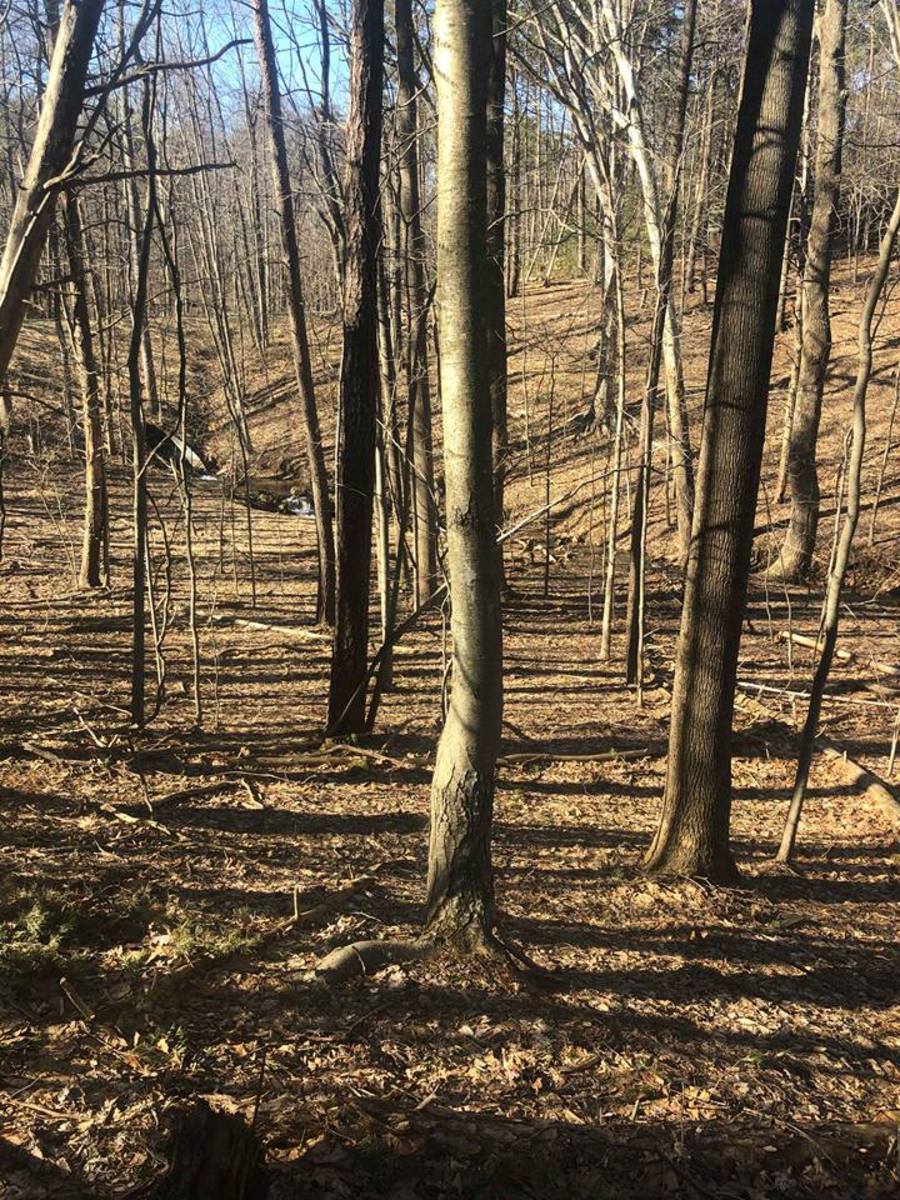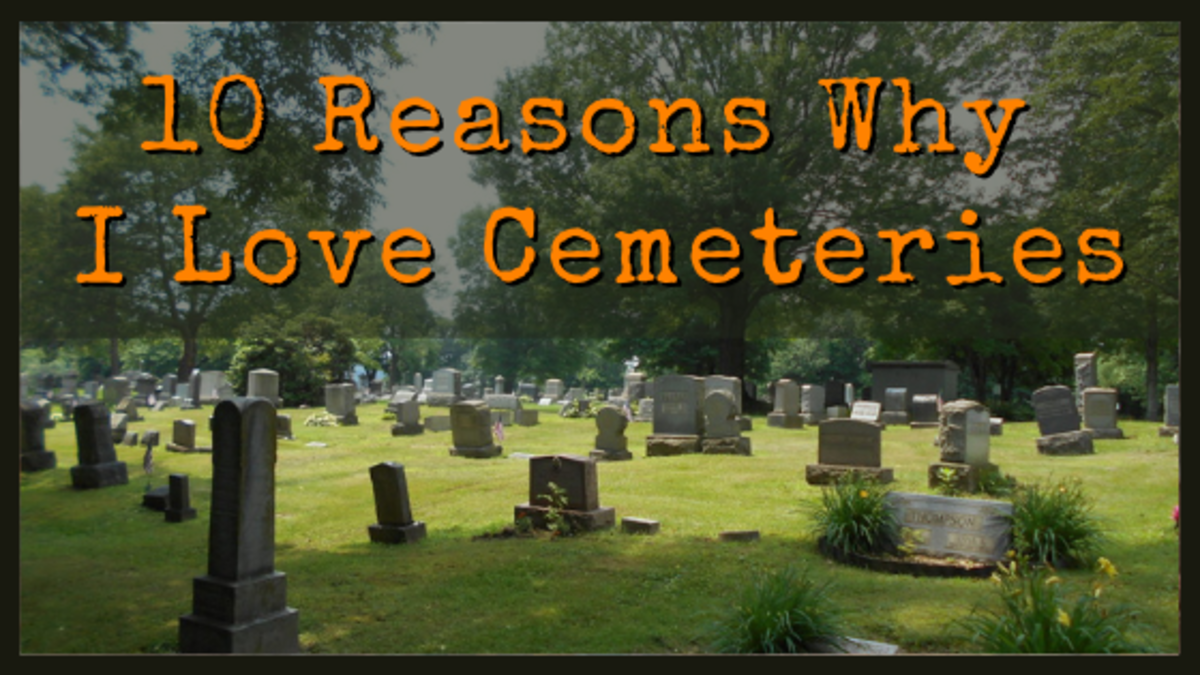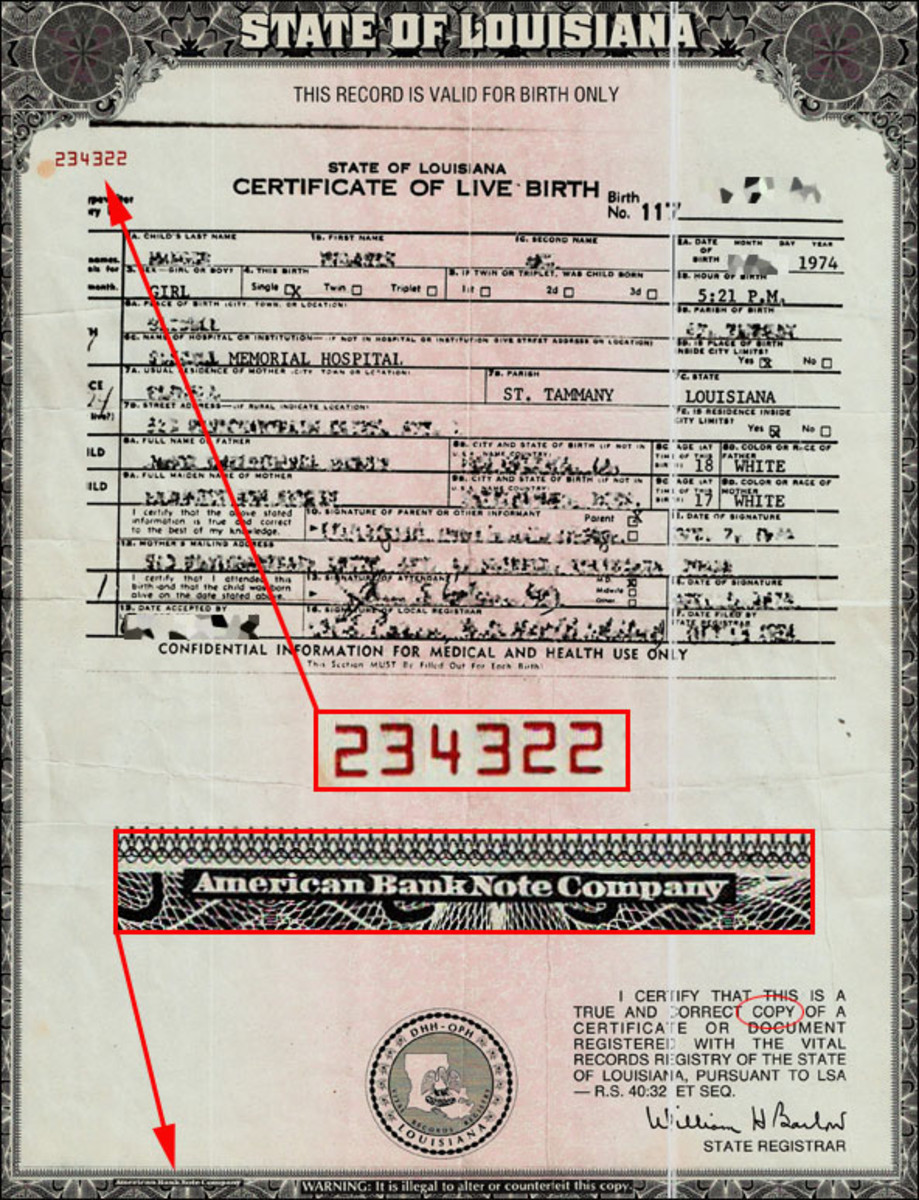Geneaology - Searching For the Missing Piece of My Native American Heritage
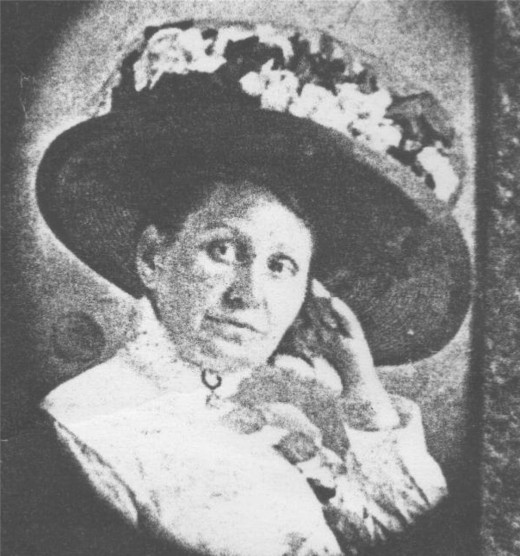
She is my obsession; has been for over 30 years. Her name at birth was Alice Elizabeth Joiner and she was born in 1875. It is rumored (never proven) that her mother was an Indian woman by the name of Sallie Reynolds Turner, born in North Carolina. Sallie's gravestone claims she was the wife of Samuel Turner Joiner yet my search on Ancestry.com revealed a birth record for Alice that showed her father's name as W.T. Joiner. After thirty-some years, I still don't really know his name.
From the time I was a child, I was fascinated by Native American culture. And yes, I always rooted for the Indians in the old western movies. I am the stereotypical wanna-be. I wanna-be the descendant of some Indian woman because it will explain my passion for the People. I need and want proof of that connection because it will answer the question of why I am who I am.
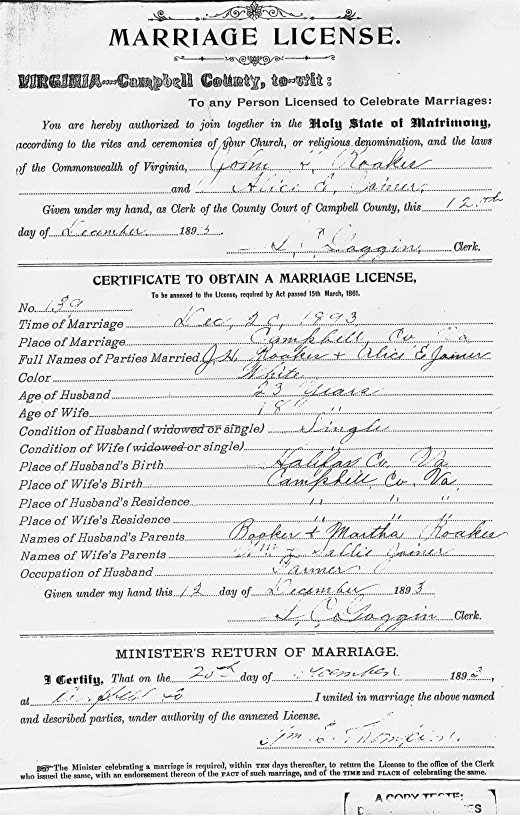
My Great Grandma Was Not A Cherokee Princess
I am certain of it. My Great Grandma was not a Cherokee Princess. Nothing in my family would indicate that my Grandma was Cherokee. But what tribe was she from? Was she even really Indian? I may never know. There were small bands of Occaneechee, Haliwa-Saponi, Tutelo, Tuscarora, Catawba. and yes, Cherokee too, living in the general region of Halifax, Virginia in the 1700's.
No one in my family ever talked about Indians. My ancestors were simple country people, mostly tenant farmers, who never owned anything. The men fought for our country in the war and the women had babies and took care of the home. They mostly lived in Campbell County, Virginia, close to the North Carolina border. So it isn't unrealistic to believe that my Great Grandfather married a woman from North Carolina. Their marriage license, dated December 20, 1893, is the only proof I have of the marriage. Alice last appeared on the 1900 Census and her mother, Sallie Reynolds Turner Joiner is listed as a member of the household. The census claims that Sallie was born in North Carolina. There is no mention of either being Indian. So no, there is no Cherokee Princess in my family.
The Missing Paper Trail
Finding your Indian ancestors may just be one of the most difficult aspects of genealogy. Being Indian was hard in in prior centuries. Indians were persecuted, the target of racism and oppression and many on the East Coast sought refuge from the persecution in the mountains of North Carolina, Tennessee, and Virginia. The assimilated into other cultures to avoid being forced into re-locations, concentration camps, or slavery. The Act of 1884 attempted to document the Indian population. Under this Act of 1884, the Commissioner of Indian Affairs issued a directive to the district Superintendents who had oversight of a reservation in their district. The directive ordered an annual census of Indians living on reservation to be submitted to his office. The directive was vague and did not specify the information to be collected. In 1885, the Commissioner revised the directive, requesting that district Superintendents collect data in accordance with his plan and provided a sample layout with columns for:
-
a number (consecutive)
-
both English and Indian names
-
relationship
-
age
-
sex
The data on Indian Rolls evolved and varied from year to year. Finally in 1919, a standard was set that required the Superintendents to estimate blood quantum and record Tribal affiliations. 1928-1930 brought major changes to the data collection and columns were added for data of birth, marital status, Allotment Annuity Identification Numbers, etc. Accurate data continued to elude the Superintendents and a more accurate history of the evolution of Indian Rolls is well documented on the Archives.gov web site.
Obviously, these are just some of the reasons that I (or you) cannot find their Indian ancestors on the Dawes, Guillon-Miller, or Cherokee Rolls. They may not be there simply because they took steps to avoid being counted. It is only in our more recent history that it became popular to be Indian and some claim to be that are not. But for our ancestors who were afraid or embarrassed to be Indian, there is no road map for finding them.
More on Family Research
- Family History - Discovering Why You Are "You"
Researching your family history has value you've never imagined. Not only can it provide a trail of genetic/medical disorders but it can also document character. It is said that that apple doesn't fall far from the tree. As you become familiar with - Family History - Where Do You Stop?
Collecting the history on your family can be overwhelming when the branches spread in too many directions. Let's talk about how much it too much and where to stop.
A Passion For The Search
When documentation is so vague and no one else in your family is interested, the journey to find your Indian roots may be a long one. For some, like me, it may never end. I may spend the rest of my life looking for something I will never find. Or, I may find that there was no truth to the rumor that my Great Grandmother was Indian. I choose not to believe that for now. This passion or love I have for the People came from somewhere. It is not imagined. It is real. I am never happier than when I am with my Indian friends or, when I am working to fight the racism, oppression, or social/political injustice that is still rampant today.
Many of my friends still live on reservations where contaminated water is causing disease or death at rates two to three times the national average. Some of my friends have grandchildren who were used as government guinea pigs to test an experimental hepatitis vaccine. The vaccine contained a living hepatitis virus and the children are now infected and not expected to live to be adults. Some of my friends on the reservation still have no indoor plumbing, no heat in the wintertime, and no air conditioning in the summer but they are still strong, spirited people who are dedicated to family and community. They take care of each other. What has been done to them is wrong and I will never stop fighting to bring attention to their plight.
To be Indian is not all gloom and doom though. Many of my friends who live off of reservations are still poor but they are amazing human beings. Some are activists, journalists, teachers, artists, and business owners. What sets them apart though is not their career or trade. It is their spirit. It is a spirit of knowing who they are and knowing that they belong to a community of People who refused to vanish, in spite of the U.S. governments best efforts.
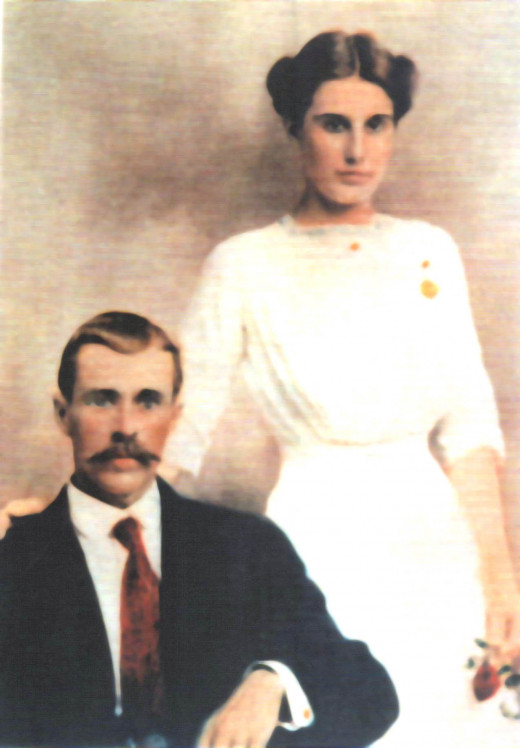
Back To My Roots
I know that my Great Grandmother, Alice Elizabeth Joiner Roakes had the same strong spirit that I mention here. She married at the age of 18 and birthed 15 children. She died at the age of 36 while pregnant with her 16th child. It was a hard life, being the wife of a tenant farmer in a rural community in south central Virginia. In spite of the hardships of poverty and isolation, Alice put her family and community first. In her last days, Alice was very sick and confined to bed. A neighbor (Hattie Scott) came to help care for her and the children. As she lay dying, Alice demonstrated her bravery and commitment to her family. She extracted a promise from Hattie that granted her the assurance that when she was gone, her children would be cared for. She made Hattie promise to marry my Great Grandfather. And, she did. When Alice died in February 1912 and in May of 1912, Hattie Scott and John Henry Roakes were married. They went on to have twelve more children together. Life was never easy for them, but it was good.
Alice came from good stock. After being widowed, Alice's mother, Sally Reynolds Turner Joiner came to live with Alice and John Henry Roakes. When Alice died, Sallie stayed on, helping Hattie to tun the household. Certainly it took both of them to cook, clean, and clothe 27 children. Sallie Joiner (nicknamed Gan) was tough as nails. She had a stern look and took no foolishness from anyone. But she was good. Only someone who was raised to value family and community would have stayed after the death of her daughter. Gan was a legend in our family. It is said that when she died at the age of 83, she still wore her hair braided, hanging down the length of her back and with not a gray hair to be found, the braid was said to be so thick that it took two hands to encircle it. This is the legend I cling to in my search for my Indian roots. Gan, and Alice, are the reason I won't give up my search.
Thirty plus years of research and I am no closer to finding them than I was when I started. All of my relatives who might have known something more, are gone. I waited too long to get serious about the research. There is no paper trail and that too supports the rumor, and my belief, that this obsession of mine is founded and that I do indeed have roots somewhere in Indian Country. For now, it's back to searching. I won't give up.
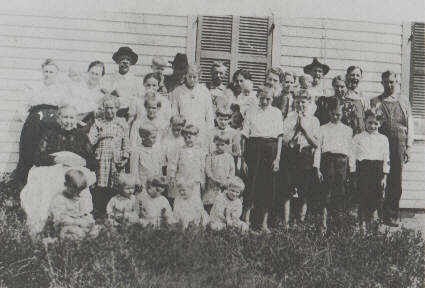

Indian Rolls
- Cherokee Nation - Rolls
- Guion Miller Roll Index
The Archival Research Catalog (ARC)is the online catalog of NARA

© 2012 Linda Crist
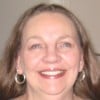
![Native America: A State-by-State Historical Encyclopedia [3 volumes]](https://m.media-amazon.com/images/I/5186ulFH-uL._SL160_.jpg)
